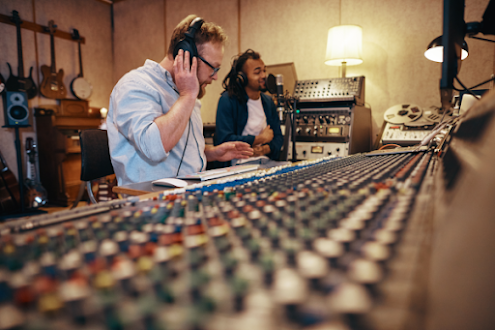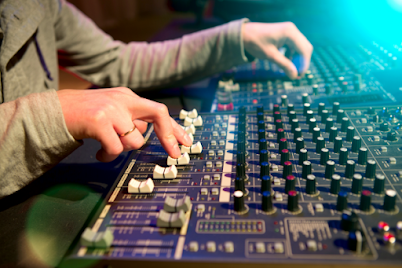Innovations in Mixing and Mastering: Technology's Impact on the Industry
Introduction
The art and science of music production have undergone remarkable transformations over the years, and nowhere is this more evident than in the fields of mixing and mastering. Technological advancements have revolutionized how audio engineers shape and refine sound, opening up new possibilities and raising the bar for sonic excellence. In this article, we'll explore the innovations that are reshaping professional mixing and mastering and their profound impact on the music industry.1. Digital Audio Workstations (DAWs):
The widespread adoption of powerful DAWs has democratized music production. Engineers now have access to a wide array of virtual instruments, effects, and processing tools within a single software environment, streamlining the creative process.
2. Artificial Intelligence (AI):
AI-driven tools are becoming indispensable in mixing and mastering. AI can analyze audio and suggest EQ, compression, and other settings, saving time and enhancing the quality of mixes. It's also used in noise reduction and audio restoration.
3. Cloud Collaboration:
Cloud-based platforms allow artists, producers, and engineers to collaborate remotely in real-time. This has expanded creative possibilities and made it easier for talent from different corners of the globe to work together seamlessly.
4. Immersive Audio Formats:
With the rise of spatial audio and formats like Dolby Atmos and Ambisonics, audio engineers are tasked with creating immersive experiences. This requires new techniques for panning and spatialization to envelop listeners in a three-dimensional sonic environment.
5. Stem Mixing:
Stem mixing involves rendering groups of tracks (e.g., drums, vocals, instruments) into stems for greater control during the mastering phase. It allows for fine-tuning the mix at the mastering stage, resulting in more polished and dynamic results.
6. Loudness Normalization:
Streaming platforms now use loudness normalization to ensure a consistent listening experience. Engineers must adapt their mastering practices to meet these platforms' standards, impacting perceived loudness and dynamic range.
7. Blockchain and Music Metadata:
Blockchain technology is being explored for music metadata management. This can help ensure fair compensation for creators and streamline royalty distribution, addressing long-standing industry issues.
8. Virtual Reality (VR) and Augmented Reality (AR):
As VR and AR applications expand, audio engineers are tasked with creating immersive soundscapes that complement these experiences. This requires innovative techniques to place sounds accurately within 3D spaces.
9. Sustainability Initiatives:
An increasing focus on sustainability has led to innovations in eco-friendly studio designs and equipment, minimizing environmental impact while maintaining high-quality audio production.
10. Audio for Podcasts and Audio books:
The growing popularity of podcasts and audiobooks demands specialized mixing and mastering techniques to optimize voice clarity and sonic consistency.
11. Enhanced Audio Quality for Streaming:
With high-definition streaming becoming more common, engineers are challenged to deliver top-notch audio quality that meets the demands of discerning listeners.
12. Remote Mastering Services:
The ability to access professional mastering services remotely has expanded opportunities for artists and producers to receive top-quality mastering, regardless of their location.
These innovations reflect an ever-evolving industry where technology continues to push the boundaries of what's possible in audio mixing and mastering. To stay relevant and excel in this dynamic field, professionals must embrace these changes, continually upgrade their skills, and adapt to the evolving landscape of music production.




Comments
Post a Comment